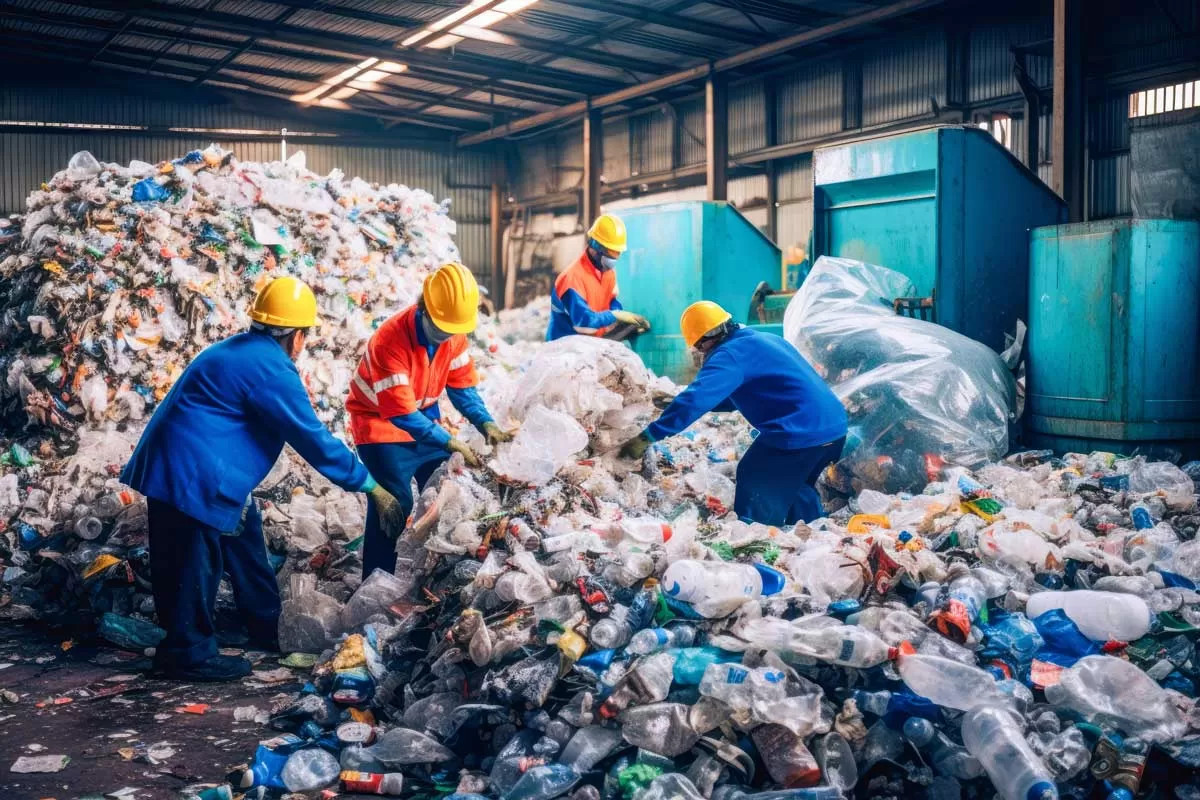Plastic roads have gained attention as a promising solution to two critical issues: enhancing road infrastructure and managing waste. However, despite growing support, their implementation is still inconsistent. At the conclusion of the ‘Swachhata Hi Seva' campaign in 2024, Union Road Transport and Highways Minister Nitin Gadkari highlighted the need for mandatory use of plastic waste in highway construction, with 80 lakh tonne already repurposed for National Highways between New Delhi and Mumbai. That said, concerns about their technical feasibility and environmental impact continue to complicate their widespread adoption.A sustainable solution India generates nearly 26,000 tonne of plastic waste daily, totalling 3.46 million tonne annually (CPCB, 2020). This figure places India after the US and EU in terms of plastic waste production.Plastic roads offer several advantages over traditional road construction, such as enhanced durability, water resistance and reduced maintenance needs. According to Rasool Khan, Director, KK Waste Management, “Plastic-blended bitumen significantly reduces water-induced damage, extending the lifespan of roads to nearly double that of conventional roads.” Devendra Kumar Sharma, EVP and SBU Head – Heavy Civil Infra, Tata Projects, concurs, stating, “The plastic-bitumen mix improves binding, reduces porosity in aggregates and enhances load-bearing capacity.”However, challenges remain. Dr Ramachandra V, Technical Adviser, UltraTech Cement, points out, “Plastic cannot fully replace aggregates due to differences in density and properties.” He also raises concerns about micro plastic pollution, noting that it requires further research. Moreover, the heating process used to incorporate plastic into roads releases toxic gases and the complex task of segregating and cleaning plastic waste adds to the hurdles of scaling this technology.Scalability and waste managementThe scalability of plastic roads is largely constrained by the availability of segregated plastic waste. Dr Ramachandra emphasises that “source-level segregation is critical to make this technology feasible on a larger scale”, as municipal waste often contains mixed plastics, making segregation a labour-intensive process. Khan echoes this, stating that “effective segregation is key to utilising plastic waste in road construction at a national level.”KK Waste Management’s experience demonstrates that incorporating 8 per cent plastic into bitumen can reduce bitumen usage, offering both cost and environmental benefits. However, Sharma points out that the current supply of usable plastic waste is insufficient to meet national asphalt demand. To address these challenges, he suggests exploring innovations like converting waste plastic into liquid form.Environmental concerns and policy gapsPlastic roads have the potential to recycle non-biodegradable waste. However, they raise significant environmental concerns, especially regarding micro plastic release and toxic emissions during production. A 2020 Cornell University study revealed that up to 85 per cent of micro plastics found in the environment originate from road construction. “Abrasion occurs due to vehicle movement, and the material’s resistance to abrasion is crucial,” explains Dr Ramachandra. “If the material isn't strong enough, micro plastics could be released.” He underlines that the road’s performance, in terms of strength and abrasion resistance, must meet or exceed conventional roads to ensure the technology’s long-term viability.Policies and standards for plastic road construction remain fragmented. While the Indian Roads Congress (IRC) has formulated guidelines for using waste plastic in hot bituminous mixes, the implementation of these guidelines has been inconsistent. The lack of standardised policies has led to confusion among project engineers, designers and consultants, hindering wider adoption. Experts argue for unified guidelines from organisations like IRC and the Bureau of Indian Standards (BIS) to address these environmental concerns and standardise practices across the industry.A word of cautionDespite the clear benefits, experts urge caution in integrating plastic waste into road construction. Khan acknowledges that while plastic roads reduce waste and improve road quality, “there are concerns about micro plastic release during the degradation process, which needs further research”. He adds that “widespread adoption requires more support from governments and private stakeholders”, pointing out that bureaucracy and lack of proper systems often slow progress.Khan also notes that the long-term environmental impact of plastic-infused roads remains uncertain, particularly concerning plastic degradation and potential leaching into soil and water. “There is a need for more research to fully understand these risks,” he states. Dr Ramachandra agrees, calling for extensive testing and monitoring to ensure that plastic roads perform as expected, especially in extreme climates or high-traffic areas. Regulatory bodies must establish clear standards for the use of plastic in road construction.Future prospectsPlastic roads could significantly contribute to India’s infrastructure and waste management goals. “Using plastic waste in asphalt modifies its properties,” says Sharma. “Hence, the same can be used as a replacement of polymer-modified bitumen and also have a larger scope for other state highways and major district roads.” With more research, improved waste segregation and technological advancements, experts believe plastic roads could become commonplace. Success stories like the 40,000 km of rural roads built under PMGSY using plastic highlight the approach's feasibility.Indeed, plastic roads offer a unique opportunity to tackle India’s dual challenges of infrastructure development and waste management. However, broader adoption hinges on overcoming technical, environmental and scalability challenges. Collaborative efforts from policymakers, researchers and industry stakeholders will be essential to fully realise their potential.Notable plastic road projectsChennai: The first 1,000 km of plastic roads built in 2004 in Kambainallur, Dharampuri districtPune: Plastic roads constructed in Navi Peth, Dattawadi, Katraj, Magarpatta City, Koregaon Park and Yerawada RoadJamshedpur: 12-15 km of plastic roads built by Jamshedpur Utility Services and Company (a Tata Steel subsidiary)Madhya Pradesh: 35 km of plastic roads across 17 districts constructed by MPRRDAMeghalaya: 430 kg of plastic waste used to build a 1-km road in 2018NHAI: 703 km of National Highways constructed using plastic.Infographic contentPlastic roads: Pros & consADVANTAGESStrengthens roads, extends lifespanReduces bitumen use by 10 per cent, cutting costsCreates jobs for ragpickersHollow spaces for easy wiring/pipingNo potholes or stripping issuesReduces plastic waste, lowers pollutionEco-friendly, minimises resource exploitationDISADVANTAGESEmits harmful gases (HCl, CO, acetone) during burningRestricts water percolation, affecting groundwater levels


















